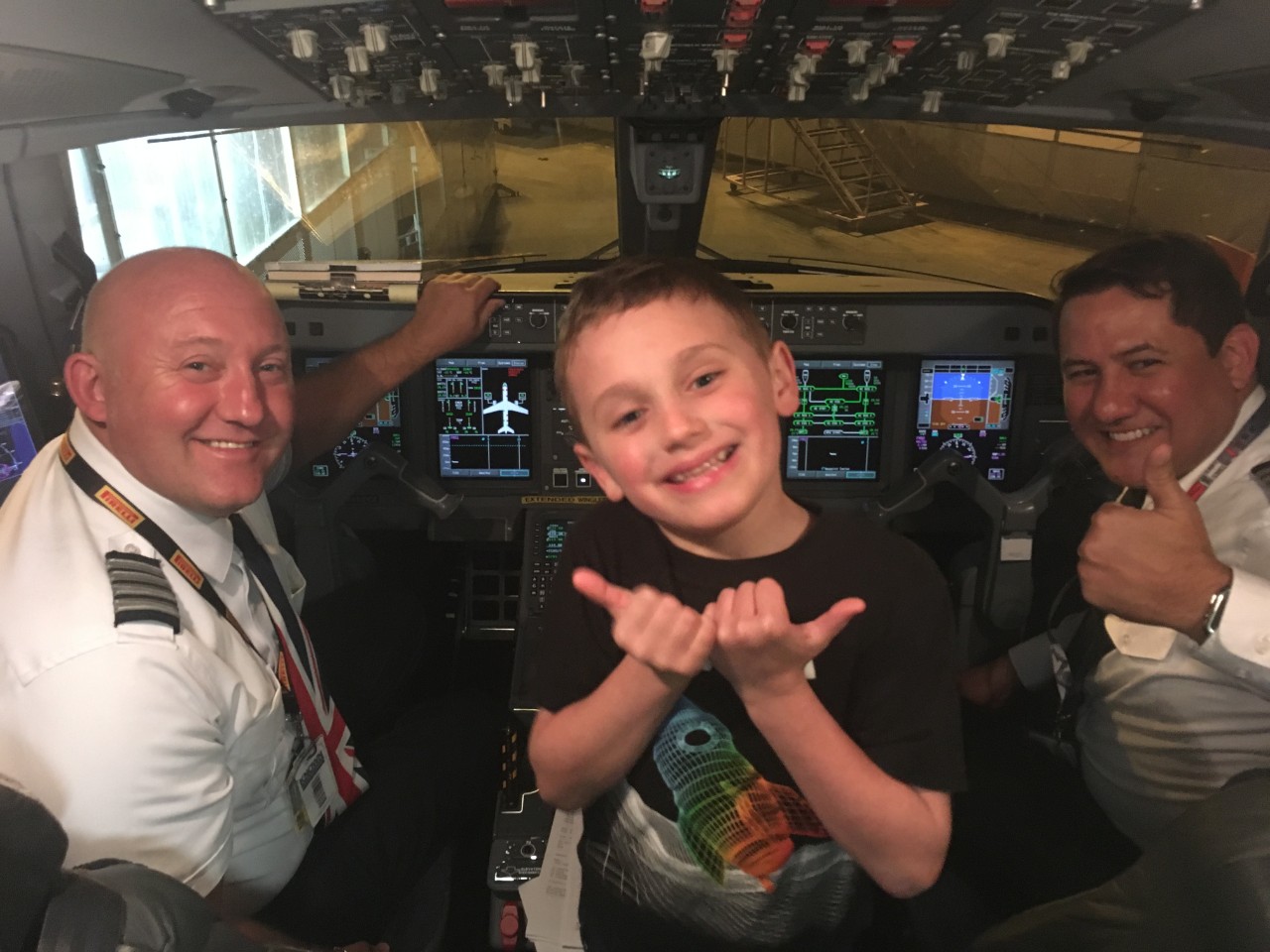Breaking Ground 97 - Flying the Friendly Skies
by Jessica Gant, Partners in Policymaking 2018-19 GraduateJust the thought of flying for some people is, well... overwhelming: Airports, traffic, noise, long lines, and all those people! Traveling can be stressful, but it doesn’t have to be.
I’m an 18-year flight attendant, a 2019Partners in Policymaking graduate, and a mother of a son with a disability. Inclusive travel, awareness, and a better travel experience are needed improvements to help our passengers with disabilities.
Both the disability community and the airline industry can benefit by knowing the Developmental Disability Passenger Needing Assistance (DPNA) and Special Service Request (SSR) codes. The DPNA and SSR codes exist to help those with an intellectual or developmental disability and to alert airlines on how best to meet the needs of their customers with disabilities. My goal is to bring awareness about the codes’ existence, and to also share my helpful tips for an inclusive and improved travel experience.
Know the Codes
Every airline is different, so, before booking your flight, be sure to review the airline’s policies for customers with disabilities. If the airline’s customer service is aware of these codes, there are a few options they can provide: early boarding, keeping families seated together, providing help through long security lines, and holding an open middle seat.
I want to encourage those in the disability community to familiarize yourself with the DPNA and SSR codes and to use them whenever you travel. Currently, these codes are very under-used. I believe the main reason for that is a lack of awareness. Last year, the International Air Transport Association reported the DPNA code was only used 4,309 times out of 250 million booked flights. Using these codes when booking your flight, allows you the ability to share specific details on your needs.
Plan Ahead
After reviewing airline policies and booking your flight, call the airline and ask them to document your specific requirements using the DPNA or SSR code. Don’t be shy or feel guilty for your request. We are here to assist you – reach out to us so we’ll know the best way to help you! Also, I highly recommend you contact TSA Cares -- a security helpline that provides additional assistance for passengers with disabilities. At the airport, ask for a supervisor or passenger support specialist who can provide “on the spot” assistance.
Arrive Early, If Possible
This is SO important! Your airport arrival time sets the tone for your entire travel experience. No one likes to be late or rushed; it adds so much anxiety and stress on everyone. When I travel, I try to arrive at the airport 2.5 hours prior to my scheduled departure.
Be Prepared
Upon arrival, check in with the airline to alert them you’ve arrived and that you or someone in your party is traveling under the DPNA or SSR code. This will ensure the airline agents have your specific requirements (i.e. assistance through security, early boarding, keeping your family together). I think it’s important to also keep in mind that airlines are not allowed to ask about your disability, so it’s up to you to share or not. Most airlines will also assist with boarding, exiting the plane, or making flight connections between gates; but an escort won’t be available to remain with or supervise a passenger while in the terminal or in-flight. If you require such assistance, inform the airline when booking your flight. Passengers who require personal, continuous attending care, or who are unable to follow safety instructions from airline personnel must bring a safety assistant with them.
Speak Up
Sometimes, no matter how well you prepare, the unexpected happens. If your expectations were not met, say something! Create a paper trail and follow up with a call to customer service. Your feedback helps us meet and exceed your needs. Give the airlines an opportunity to respond to your inconveniences and correct any mistakes.
Of course, if you have a great experience, we want to hear about that, too! Please take a minute to recognize the person who goes above and beyond to make your trip special. I love getting those letters, and most of us work very hard to ensure you feel like a valued guest in our “home.”
Happy Flying!
